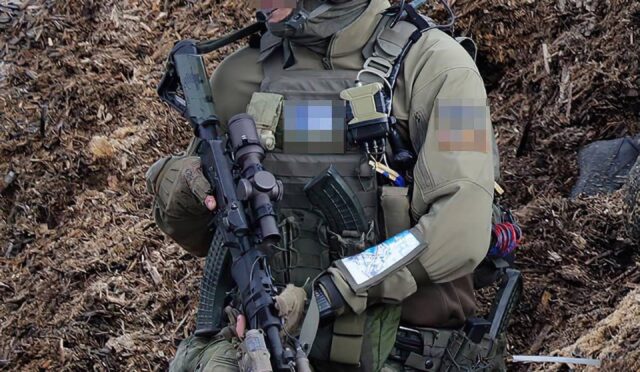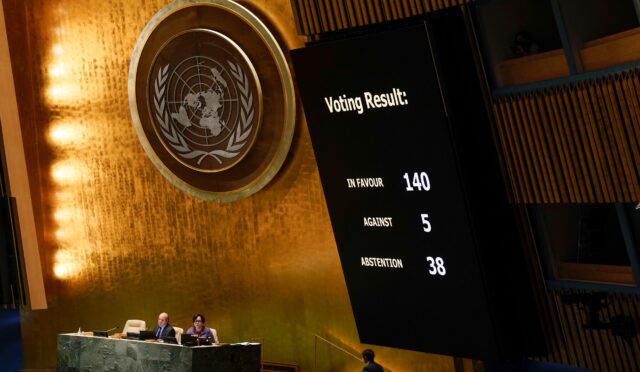Iran’s Supreme Leader Issues Strong Warning
On Monday, Iranian Supreme Leader Ayatollah Ali Khamenei issued a stark warning against any potential aggression towards the Islamic Republic. His remarks followed threats from U.S. President Donald Trump, who recently indicated that military action could be taken if Iran did not agree to a nuclear deal. “They threaten to cause mischief,” Khamenei stated, suggesting that any attack would be met with a forceful retaliation. In his speech during Eid al-Fitr, a significant holiday marking the end of Ramadan, he emphasized the readiness for a counterattack should military action commence.
Khamenei’s warning comes in the wake of Trump’s comments made during an interview, where he claimed, “If they don’t make a deal, there will be bombing.” Trump hinted at severe repercussions, including the implementation of what he termed “secondary tariffs” on Iran. However, it remains uncertain whether any bombing would be conducted exclusively by U.S. forces or in conjunction with Israel.
The Context of Rising Tensions
Since his inauguration in January 2021, President Trump has revamped his approach to Iran, reinstating his “maximum pressure” campaign. This strategy includes the withdrawal of the United States from the landmark 2015 nuclear agreement, which sought to curb Iran’s nuclear ambitions in exchange for sanctions relief. Trump’s earlier policies imposed stringent sanctions on Tehran, which Western nations believe are necessary to limit Iran’s purported pursuit of nuclear weapon capability—an accusation Iran consistently refutes, maintaining that its nuclear programs are intended for peaceful purposes.
The agreement established in 2015 between Tehran and major world powers required Iran to restrict its nuclear activities significantly. Recently, on March 7, Trump communicated with Khamenei, suggesting nuclear discussions and alluding to potential military action if negotiations failed to progress. This message was relayed to Iran by Anwar Gargash, a United Arab Emirates presidential adviser, marking a significant point in ongoing tensions.
Iran’s Response to Negotiations
In response to Trump’s outreach, Iranian Foreign Minister Abbas Araghchi confirmed that Iran had sent its reply to Oman, although he refrained from disclosing its specifics. Araghchi reiterated Iran’s refusal to engage in direct negotiations under conditions of severe pressure and military threats, yet he acknowledged the possibility of “indirect negotiations.” Oman, having a history of mediating between the U.S. and Iran due to the absence of formal diplomatic relations since the Islamic Revolution in 1979, may play a crucial role in this dialogue.
The situation remains intricate, particularly as Western nations accuse Iran of employing proxy forces to increase its influence throughout the region, a claim Iran hotly contests. Khamenei’s assertion that, “There is only one proxy force in this region, and that is the corrupt usurper Zionist regime,” underscores the Islamic Republic’s staunch opposition to Israel, its principal adversary. Iran advocates for the elimination of its non-recognized neighbor while maintaining connections with proxy groups such as Hezbollah and Hamas.
The Geopolitical Landscape
Khamenei’s remarks reflect the broader geopolitical dynamics at play, as Iran leads the so-called “axis of resistance” against perceived threats in the region. This axis includes various militant groups and factions across the Middle East, all united against what they perceive as foreign aggression, particularly from the United States and Israel. Khamenei’s statements on Israel reaffirm Iran’s long-standing position of non-recognition and hostility, which contributes to the complex interplay of alliances and animosities in the region.
The escalating rhetoric and heightened military threats come at a time when the prospect of diplomatic resolution seems increasingly elusive. As both nations remain entrenched in their respective positions, the potential for conflict looms large, underscored by Khamenei’s assertion of readiness for robust retaliation should military action occur. The world watches closely as the situation develops, with fears that miscalculations could lead to a broader regional confrontation.







